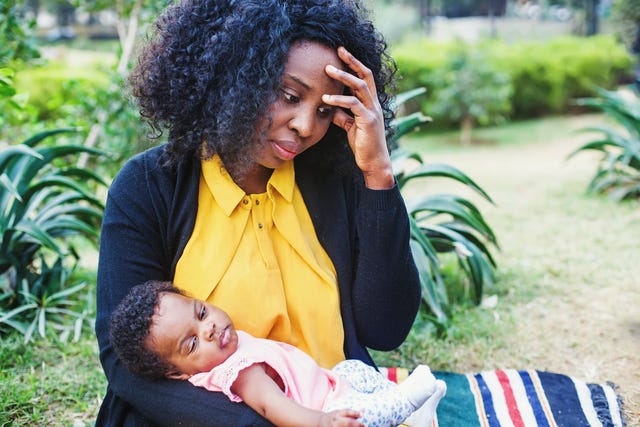Silent Struggles:
The Unseen Scars of Children with Mothers Battling Mental Illness
She was only eight years old when she realized something was different about her mommy. Some days, her mother was the most loving, warm, and attentive person in the world. I can still see that little girl sitting between her mama’s legs on the floor after getting her hair washed, greased up, and put into braids or ponytails. The sound of grease popping from frying chicken, and watching her make homemade gravy with flour and water for the mashed potatoes. This was the home of comfort and love.
But then, there were the other days. Days when that same loving woman would disappear into a world the little girl couldn’t reach—a world where smiles were replaced with tears and uncertainty, where hugs were replaced with an eerie, empty silence.
That little girl was me. I tried my best to understand, to help in whatever way my young mind could, but I was just a child. I didn’t know what mental illness was, and I couldn’t fathom why my mother couldn’t be like the other moms. I wondered if she didn’t want me anymore, if somehow, I had done something wrong. So, I carried the weight of her sadness, trying to be extra good, extra quiet, hoping it would make a difference. But it didn’t. And slowly, that little girl began to lose pieces of herself, trying to fix something she couldn’t control.
Growing up with a parent suffering from mental illness is a unique and painful journey. We often find ourselves playing roles far beyond our years— by being caregivers, peacekeepers, and sometimes, even protectors. The unpredictability of our parent’s illness creates an environment of fear and instability, leaving us to navigate childhood in a constant state of anxiety.
It’s a silent struggle, one that too often goes unnoticed by the outside world. We feel isolated, burdened by a sense of guilt or responsibility that’s far too heavy for our small shoulders to carry. We might struggle with our own mental health, academic performance, and social interactions as we try to balance the normal pressures of growing up with the added stress of our home life. And the saddest part? Many of us carry this trauma into adulthood without even realizing it’s there, showing up in our lives as issues with abandonment, mistrust, self-doubt, and low self-esteem. Some of us even feel the need to overcompensate just to feel like we belong or are accepted.
"Growing up with a parent's pain teaches you strength, even when you feel powerless."
This is why statistics show that children of parents with mental illness are at a higher risk of developing emotional and behavioral issues themselves. According to the National Alliance on Mental Illness (NAMI), nearly 1 in 5 children in the U.S. live with a parent who has a mental health condition. These children are two to three times more likely to develop mental health problems than their peers. The trauma of growing up in such an environment can leave lasting scars, affecting self-esteem, relationships, and overall well-being well into adulthood.
But sis, there is hope. With the right support systems, these children, AND ADULTS can find resilience and strength. Organizations like NAMI and Mental Health America offer resources for families dealing with mental illness, providing guidance on how to navigate these complex dynamics and offering support for both parents and children. It’s crucial that we create spaces where these children can express their feelings, seek help, and know that they are not alone in their struggles.
If you know a child living in this reality, remember that even a small act of kindness or understanding can make a world of difference. We must all work together to ensure these silent struggles are heard and that these children are given the support they need to thrive.
Now here’s the question: How can we, as a community, better support the silent struggles of children living with a parent battling mental illness?
Resources:
National Alliance on Mental Illness (NAMI): www.nami.org
Mental Health America: www.mhanational.org
The Child Mind Institute: www.childmind.org
With love and empowerment -E
Empowering sisterhood one story at a time,
#MentalHealthAwareness #ChildrenOfMentalIllness
#SupportOurKids #BreakTheSilence #MentalHealthMatters
#ChildhoodTrauma #Resilience #HealingJourney
#CommunitySupport #EndTheStigma


